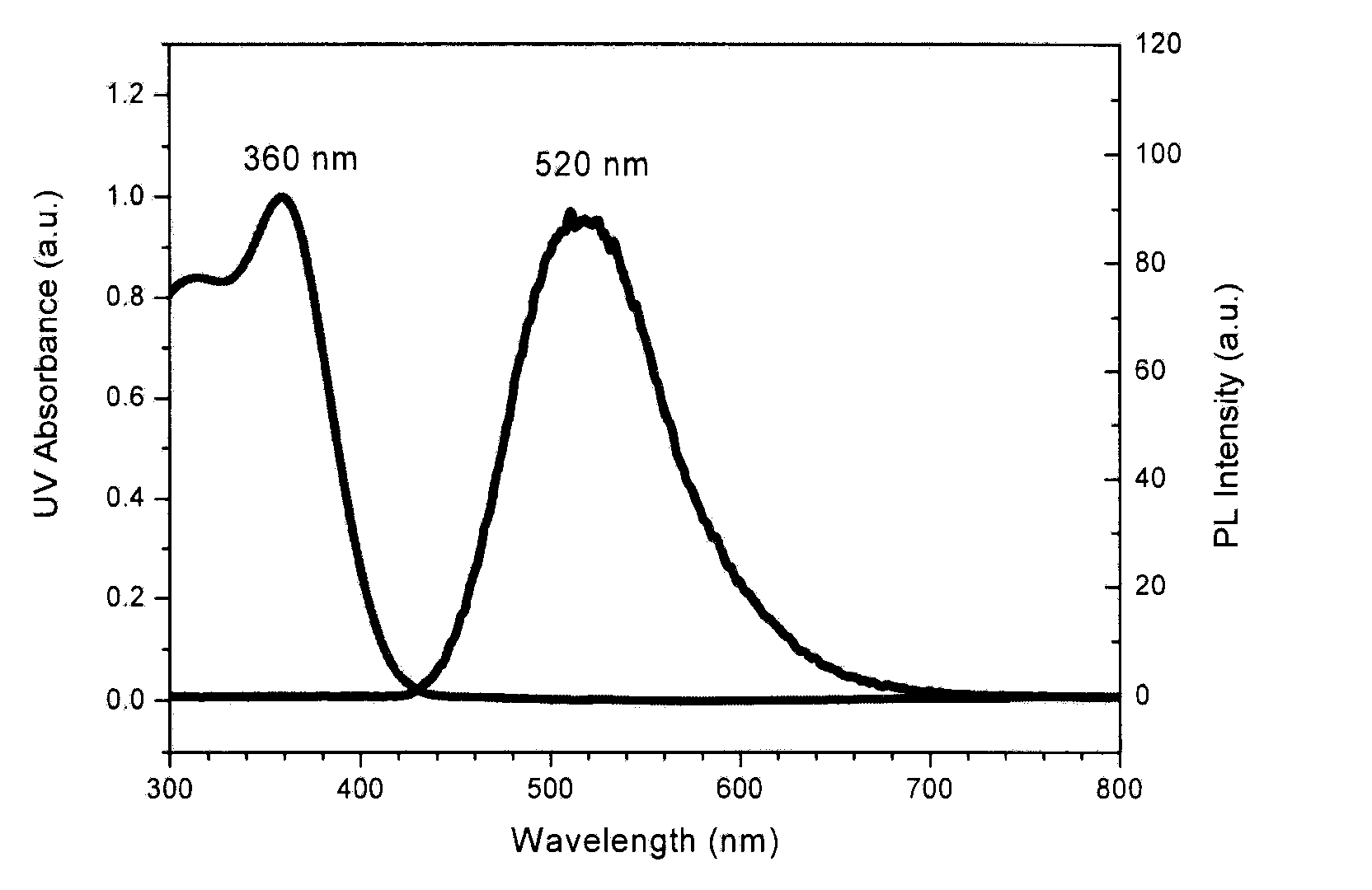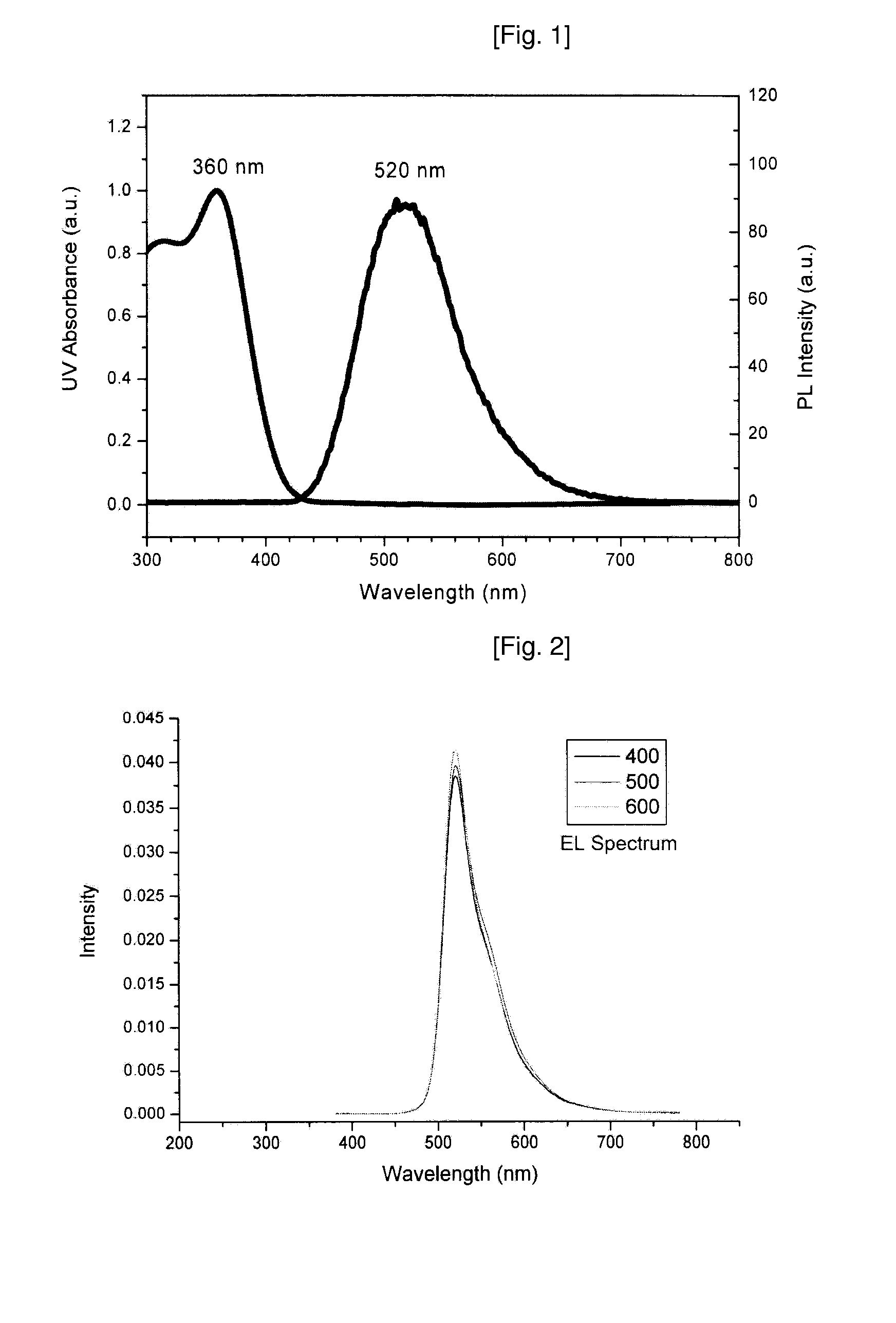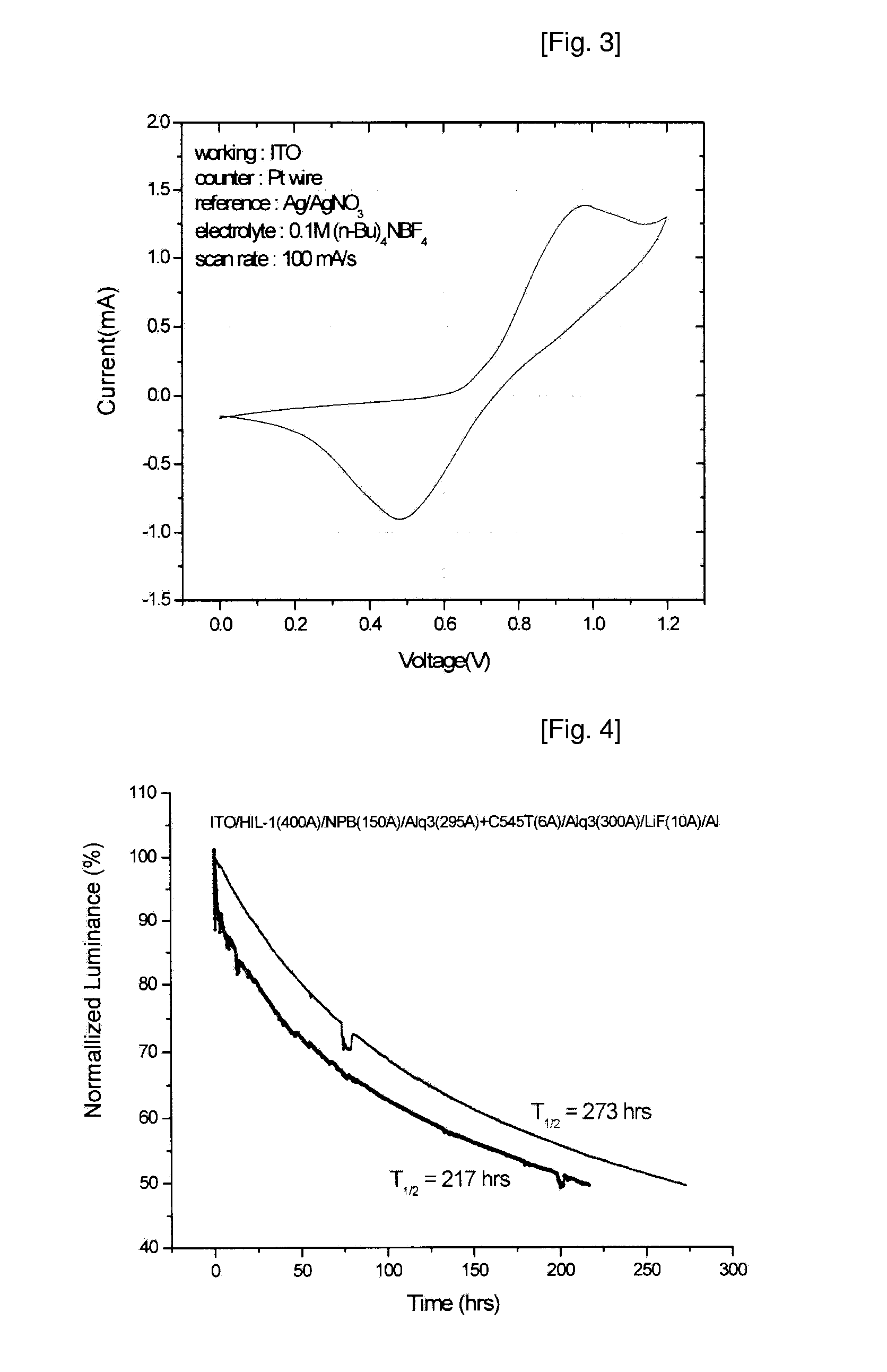Novel Deuterated Aryl Amine Compound, Preparation Method Thereof, and Organic Light Emitting Diode Using The Same
- Summary
- Abstract
- Description
- Claims
- Application Information
AI Technical Summary
Benefits of technology
Problems solved by technology
Method used
Image
Examples
example 1
(1) Preparation of triphenylamine-d15
[0033]
[0034]After, 5 g (30.9 mmol) of bromobenzene-d5 and 1.52 g (15.5 mmol) of aniline-d5 were dissolved in 150 mL of toluene, 0.43 g (0.465 mmol) of tris(dibenzylidene acetone dipalladium) was added thereto under a nitrogen atmosphere. To the resulting mixture, 1.79 g (18.6 mmol) of NaOBut, followed by 0.19 g (0.93 mmol) of (t-Bu)3P were added. The resulting mixture was refluxed while stirring for 12 hours. The completion of the reaction was identified by a TLC. After the reaction was completed, the temperature was lowered to room temperature. The reaction solution was poured onto a thin silica pad so as to perform a short chromatography, and the fraction containing the desired product was washed with dichlorometane. The residual solution was evaporated under a reduced pressure to remove the solvent. The residue was then purified by a chromatography using 10% dichlorometane in n-hexane, to obtain 3.55 g (yield: 88%) of triphenylamine-d15 as a w...
example 2
(1) Preparation of N,N-di-naphtalelen-1-yl-anthracenyl-9,10-diamine
[0046]
[0047]5 g (14.9 mmol) of 9,10-dibromoanthracene and 4.26 g (29.8 mmol) of 1-aminonaphtalene were dissolved in 200 mL of toluene, to which 0.41 g (0.447 mmol) of tris(benzylidene acetone dipalladium) was added under a nitrogen atmosphere. To the resulting mixture, 0.18 g (0.89 mmol) of P(t-Bu)3, followed by 1.72 g (17.9 mmol) of NaO-t-Bu were added. The reaction solution was refluxed while stirring for 24 hours. When the reaction was completed, the reaction solution was filtered at a high temperature through a thin silica gel pad to remove palladium. The filtrate was worked-up using ethyl acetate and water. Ethyl acetate layers were dried with MgSO4 and then evaporated under a reduced pressure to remove most of the solvent. The residue was filtered to obtain a first brown solid product. After the filtrate was again evaporated under a reduced pressure, the residue was dissolved in a small amount of ethyl acetate,...
PUM
 Login to View More
Login to View More Abstract
Description
Claims
Application Information
 Login to View More
Login to View More - R&D
- Intellectual Property
- Life Sciences
- Materials
- Tech Scout
- Unparalleled Data Quality
- Higher Quality Content
- 60% Fewer Hallucinations
Browse by: Latest US Patents, China's latest patents, Technical Efficacy Thesaurus, Application Domain, Technology Topic, Popular Technical Reports.
© 2025 PatSnap. All rights reserved.Legal|Privacy policy|Modern Slavery Act Transparency Statement|Sitemap|About US| Contact US: help@patsnap.com



